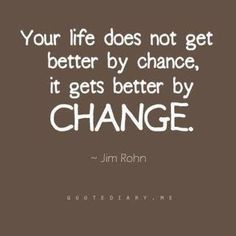Learning to Overcome Addiction Part 4
This is a 4 part blog, dedicated to helping you overcome addiction.
Make sure that you stop the addiction on the date as planned.
When we commit to a task or any task for that matter we need to do our best to keep that date. Having our friends and family close on this date can be beneficial to some and not to others. Make this an informed choice. if you need support try and get someone that will not be judgmental, abrupt, or a trigger for relapse. having support will ease the pain of trying this all alone.
Look for support. Who can you turn to for support when you need it? Have a list of people and professionals that will help you on the BAD days. You may think that you can handle this on your own but you will need some help to keep motivated. This does not necessarily mean that you need to get professional help but it sure can't hurt. There are groups and meetings that can help you through the bumps in the road to recovery. There are also online groups for support through Facebook blogs and recovery websites.
Look for support through friends and family as well as any materials on cognitive behavioral therapy, skills training, motivational interviewing, Having a personal therapist that is versed in the stopping of the addiction process can be very beneficial to the recovery process.
The first few days will seem to be overwhelming and always remember Boredom is the number ONE REASON FOR RELAPSE. Fill your time try and remember what it is that you do or did for fun that came before the addiction. Any sort of community projects or clubs can help fill this time and give a sense of giving back. Social interactions and activities will help your brain release the neurotransmitters that make us feel good naturally.
You will need to look at the triggers that evoke the need or want to fall back into addiction.
If you have a drug addiction there are some places that you would need to avoid until you are strong enough to handle them. Some of the things that you need to avoid will be easy to identify such as friends, places of use, places where we hooked up and even bars and casinos can be a trigger for some. Knowing and learning what triggers usage is paramount to the recovery process. For now don't confront these triggers directly as this can put you in a bad situation and lead to relapse. In time these triggers will become less and less.
We can not control what we think.
Trying to control what we think is a futile process that will take all of your energy and often times lead to relapse. The truth that we can not control the random thoughts to use is an eye opening realization. The only true thing we can control is how we act on those random thoughts. This principle is one of the most important realizations that translate in life as well as addiction to drugs or alcohol. Do not fall back to your old habits and friends that want to see you back in the miserable place that they are still stuck in. You will need to make up new habits and routines to avoid these triggers. Change places to eat or have coffee and recreational activities that will put you in the position of seeing old friends or dealers. Give yourself at least 6 months before trying to confront these feelings as they can be to strong for the addict in early recovery.
Always refer back to your list for stopping the use of drugs or alcohol .
Relapse prevention and overcoming relapse.
Relapse in not a part of recovery but it can happen. There are a few steps that will help it not happen again. Look at what was going on in your life at the time of the relapse, the places you went, the people you saw and discussions you had. Make a list of these things and figure out where the trigger was . Once you figure it out, maybe with the help of your go to friend or counselor, find ways not to put yourself in that same position again. Try and make sure that the guilt and shame that you were feeling at the time of the relapse does not consume your life. Realizing that this was a mistake and that you are trying to change is a big step in the right direction to your recovery. Go back to your list for quitting and then look at your journal of trials and su
Make sure that you reward and celebrate your achievements and goals you have accomplished.
Call Now Our counselors are here to help you
1-800-513-5423
This is a short program overview that is in no way a substitute for clinical help and drug rehabilitation centers. For the best result always consult an addiction specialist or get yourself into a drug and alcohol rehab program . These steps are what have helped me in my early recovery and I thought I would share them in hopes that they will help other achieve a life without the need for addiction.



